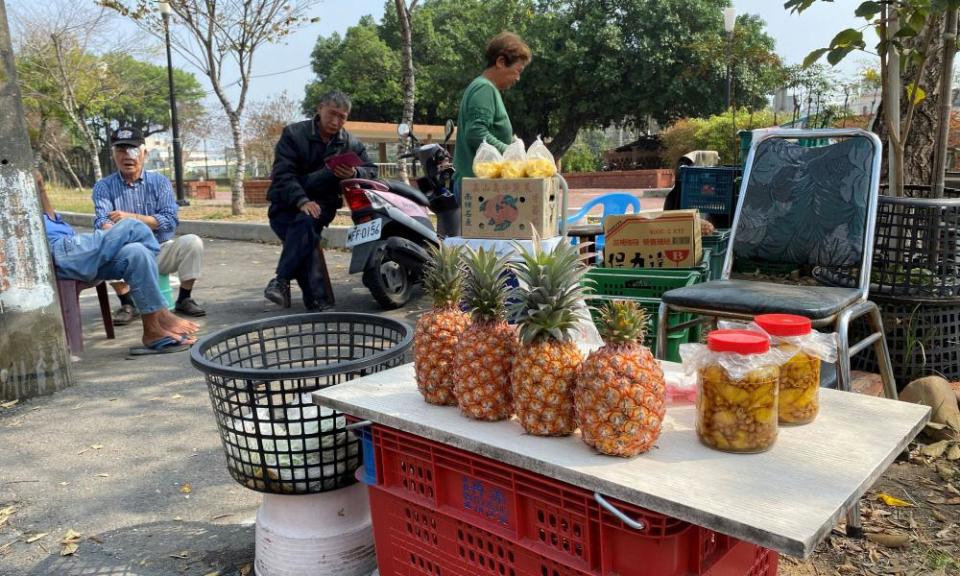Taiwanese urged to eat ‘freedom pineapples’ after China import ban

Taiwanese pineapples have become the latest victim of deteriorating cross-strait relations, after Chinese authorities suddenly banned imports of the fruit.
The ban, which begn on Monday and is indefinite, was announced by the Chinese customs office on Friday. The customs office said harmful pests had been detected in recent shipments.
Taiwan’s government rejected the claim, accusing Beijing of making an “unacceptable” unilateral decision, and urging citizens and international allies to eat “freedom pineapples” in support of the domestic industry, echoing the campaign to support Australia’s wine producers after Beijing imposed tariffs last year.
Beijing has a history of enacting trade sanctions during international disputes, most recently with Australian wine, coal and barley, action that can cause significant economic damage to industry and put pressure on rival governments. Relations with Taiwan are at the lowest in decades. Despite the Communist party never ruling Taiwan, Beijing considers it to be a province of China, and has vowed to unite it with the mainland, by force if necessary.
Pineapples reportedly make up about 40% of Taiwan’s total fruit exports, of which 90% go to China. More than 41,600 tonnes were shipped in 2020, according to the council of agriculture.

Taiwan’s president, Tsai Ing-wen, accused China of unfair trade practices, and said 99.79% of imported batches passed inspection. Tsai also announced NT$1bn ($36m) in assistance to Taiwan’s pineapple farmers, and pledged to expand the export market to 30,000 tonnes by increasing overseas sales incentives and “strengthening marketing activities” in the United States, Japan, Singapore and other international markets.
“Data proves this sudden unilateral decision is not based on health or fair trade,” Tsai said, urging people to enjoy Taiwan’s pineapples “whether in a smoothie, a cake, or freshly cut on a plate”.
In another tweet she asked for people to share their favourite type of pineapple cake.
Joseph Wu, Taiwan’s foreign minister, accused China of punishing Taiwan’s southern farmers, who are preparing to harvest.
“Remember Australia‘s #FreedomWine?,” he said on Twitter, referring to an international campaign to make up for the sales lost to China’s ban on the product. “I urge like-minded friends around the globe to stand with Taiwan & rally behind the #FreedomPineapple.”
China’s Taiwan affairs office said the ban was “totally reasonable and necessary”.
“The Democratic Progressive party (DPP) authorities have deliberately misrepresented and maliciously interpreted technical issues, taking the opportunity to attack and discredit the mainland,” it said.
The trade hit to Taiwan is the latest salvo in continuing tensions between the two governments. In recent years, particularly 2020, Chinese military activity and sabre-rattling has increased. Beijing has also reacted with high sensitivity to any international behaviour which appears to recognise Taiwan’s sovereignty, including official visits to the island, art and cultural exhibits which refer to it as a country, or even “separatist” cakes at diplomatic social events.

 Yahoo Finance
Yahoo Finance 